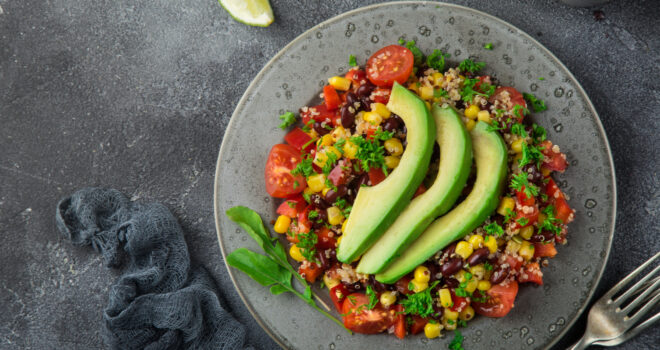Eating an avocado daily helps better manage the components of metabolic syndrome, according to a new meta-analysis published in Phytotherapy Research.
Metabolic syndrome is the combination of abdominal obesity with at least two other risk factors, such as:
- high triglyceride levels,
- a low HDL cholesterol level,
- high blood pressure,
- high fasting blood sugar.
Metabolic syndrome confers a five-fold increase in the risk of type 2 diabetes and a three-fold increase in the risk of heart disease. Lifestyle changes can help reduce this risk. Lipid-lowering avocados could possibly contribute to achieving this, as they are a well-known source of carotenoids, minerals, phytosterols and phenolics. Several studies have already highlighted the promising effects of this fruit (or of other plant parts, such as its leaves) on the various risk factors that play a role in metabolic syndrome. This review report hopes to clarify matters.
Most significant impact on lipid profiles
The authors analysed 129 articles, combining clinical studies, both in vivo and in certain cases also in vitro, to evaluate the pharmacological effects of avocado on the different components of metabolic syndrome and on the mechanisms that potentially cause it.
The conclusion was that avocado’s pharmacologically active compounds could help improve lipid profiles. The studies point to reduced total cholesterol, LDL cholesterol and triglycerides as well as increased HDL cholesterol.
They also showed low-density LDL was lowered, suggesting a reduced cardiovascular risk. The three types of studies, finally, also indicate that avocados could have other health benefits, helping to reduce obesity, high blood pressure and atherosclerosis.
Avocados as a dietary supplement
The authors suggest that eating an avocado daily could help treat the various components of metabolic syndrome, without all the inconveniences of medication and other synthetic products.
This does not mean that just eating an avocado a day will guarantee an improvement in these parameters. This should be combined with a healthy lifestyle and diet. It is also worth bearing in mind that at just under 200 calories per 100 g, avocados are also a very high-calorie fruit… Moderation is key in other words…
Discover everything about avocado here



 Flageolet Beans
Flageolet Beans  Dandelion greens
Dandelion greens  Vegetable garden: growing gherkin
Vegetable garden: growing gherkin 









